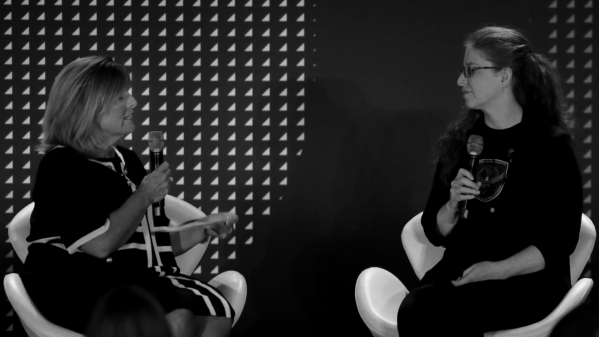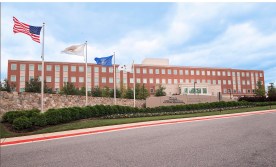DISA vice director: Mobility goes beyond smartphones

Maj. Gen. Sarah Zabel, vice director of DISA
The second in command of the Defense Information Systems Agency wants the Department of Defense and private industry to move past the idea that mobility is just about smartphones and understand that it encompasses everything from Google docs to F-16s.
DISA Vice Director Maj. Gen. Sarah Zabel spoke about her challenges in pushing people to think like this both inside and outside of the agency, saying the current state of mobility has been stagnant since the advent of voice and email on mobile phones.
“We don’t seem to be working at an earth-shattering pace to get to mobile ablement,” Zabel said Thursday during remarks at a mobile technology summit held by the Armed Forces Communications and Electronics Association. “To have a mobile enable workforce, you need to want it, to demand it and to think mobile in order to bring all the different elements together.”
Like many other agencies that deal with massive enterprise systems, Zabel said DISA is hampered by the legacy systems that DOD must access, but can’t via modern mobile devices because the technology is more than two decades old. She points to programs in the Air Force which are nicknamed “rips,” in which data is processed via reams of paper that is fed through printers that were in vogue in the early ’90s.
“Imagine explaining that process to a young airman these days,” Zabel said. “They are looking at you wondering ‘Why are we printing something?’ They don’t even know why someone would rip something off the printer.”
Understanding the way younger people are often fiercely attached to their devices is a factor Zabel wants to embed in the way DISA embraces new mobile technology.
“We need to respect the fact that these are personal devices and they bring new capabilities,” she said. “If we want to have new capabilities coming into our world at a reasonable pace, we need to be able to manage some level of diversity.”
Zabel said she would like to see DOD embrace an “unlimited BYOD” stance, where any device can be brought into a professional setting as long as it passes the requisite security checks.
“That’s going to be something we need to keep learning,” she said. “We have to have an underlying security basis that really protects the information and business processes that we are responsible for.”
To do that, DISA has been working on a pilot that would move away from having to use CAC sleds — often costing more than the phone itself — with smart devices and toward side loading PKI-enabled derived credentials so security certificates can live on the devices themselves.
Zabel has been working with NIST and NSA on an early pilot that would allow for this type of credential, calling it “very successful.” She expects the program — named Purebred — to be put on iOS devices in the spring, with Samsung and BlackBerry devices to follow later this year.
Yet given that Zabel wants to harness the power of mobile devices on email, she implored industry to apply the same level of security toward applications, calling on the private sector to build federated app stores that would allow DOD to examine an app’s security profile before it’s ever put on DOD devices.
“We have the potential to have so many creative entities bring good products forward,” she said. “Yet sometimes those are not good creative entities, they are bad creative entities. What we need to be able to do is get to apps before they are created.”
It is this creative atmosphere that Zabel wants to push inside DOD, before another two decades have passed and using mobile devices strictly for phone and email is considered more of a history lesson than common practice.
“As we think about mobility, we need to think far beyond,” she said. “If you stick with that [phone and email] context, you can join me in being part of the next generation of dinosaurs.”
Contact the reporter on this story via email at greg.otto@fedscoop.com, or follow him on Twitter at @gregotto. His OTR and PGP info can be found here. Subscribe to the Daily Scoop for stories like this in your inbox every morning by signing up here: fdscp.com/sign-me-on.






